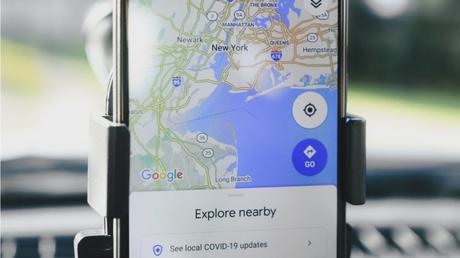Are you running a small business? Say, a motorcycle mechanic shop, music store, restaurant, hardware store, etc. If you are, then you may have already realized how important local customers are for you. If you agree, you should also know that when it comes to digital marketing, local SEO is one crucial element you shouldn’t be missing out on.
Local SEO is a powerful strategy that locally operated small businesses can use with just a couple of clicks to get found by their local customers. Local SEO can help your small business become visible even without a business website if potential customers are looking or searching online for services or products like the ones you’re offering.
Here are local SEO tips to help your business in 2021:
Keyword Research
Your local SEO’s success or failure can be decided by this fundamental step. The first thing you need to do is to discover what the most relevant phrases and keywords are related to your business. Make sure to include all locations, as well as products or services. When it comes to locations, make sure to use any word or phrase that’s associated with your area. That means you have to keyword not just your town or city, but also your region or country.
Create A GMB (Google My Business) Profile

What’s Google My Business? It’s a platform where locally operated small businesses can engage their customers across Google Maps and Google search for free. Note that it does more than just a simple business listing. You can connect with customers through bookings, follows, calls, and clicks once you already have a profile on GBM. You can even add photos. Remember that when filling out your details, more is better, so fill them out as much as you can in your account dashboard.
Grow Your Business With Lead Generation Platforms
Match Your NAP (Name, Address, Phone Number) on Google My Business With Your Website
Keep the same NAP on GBM with your website if it’s improving the ranking of your website in local search engines that you’re aiming for. Doing so will help search engines in collecting accurate data about your business, especially when you avail of citation building service from SEO Builder or any other SEO agency.
Maximize Title Tags And Meta Descriptions
When it comes to strengthening your on-page SEO, one popular factor that you should consider is the page title tag. It can be easily located by people at the top of their browser tab. It allows users, including Google bots, to get an insight into what they can expect after clicking your website’s link.
Here are key things to remember when it comes to title tags:
- In your page description, always include target keywords.
- The keyword should be placed at the beginning.
- To get complete, full display at SERP, don’t extend the description’s length beyond 60 characters.
- If possible, include brand name.
Next is the short information snippet known as the meta description. It’s also visible in the SERP. Things to remember about the meta description are the following:
- It should be kept interesting, informative, and unique.
- It should contain only 140-160 characters.
- Include your target keyword.
- Keyword stuffing should be avoided.
Optimize For Voice Search
These days, voice search is rapidly getting a hold in many homes. This new searching comfort just by speaking is enjoyed by children, youth, and grandparents alike. That’s why it’s highly recommended to optimize content for voice search if you want to improve your local SEO. Observe how people make their queries when speaking to their devices; that’s how you optimize for voice search.
While typing topics of interest or queries, people generally write short keywords. However, they do the following when they have the freedom of voicing their queries:
- Ask in proper question format.
- Write long-tail keywords.
- Consider their device as an assistant or even friend.
- Use a conversational tone when talking.
- Make search intent clearer by using more question words, including who, when, how-to, how, where, what, and why.
Essential SEO Guidelines for eCommerce Stores
Use The Appropriate Schema
What schema markups do is help search engines in understanding information that’s location-based structured, such as your NAP and others.
You should be using the appropriate schema depending on your local business type. The three generally supported formats when writing schema marks for websites include RDFa, Microdata, and JSON-LD, which is the most recommended format.
Final Thoughts
Search engines, like Google, use IP addresses and geolocation (location-based data) for providing results that matter to its end users the most. That means you can improve your online visibility in the local search results by following the local SEO tips above for optimizing your website.
